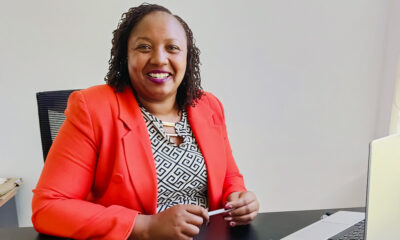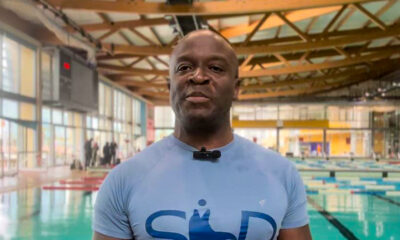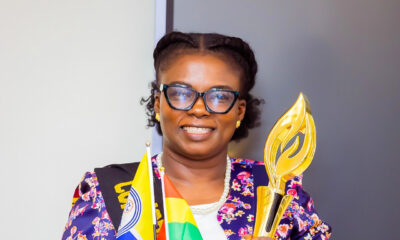Features
Kenyan Search & Rescue Diver Susan Mtakai is on A Mission to Champion Women in the Marine Sector
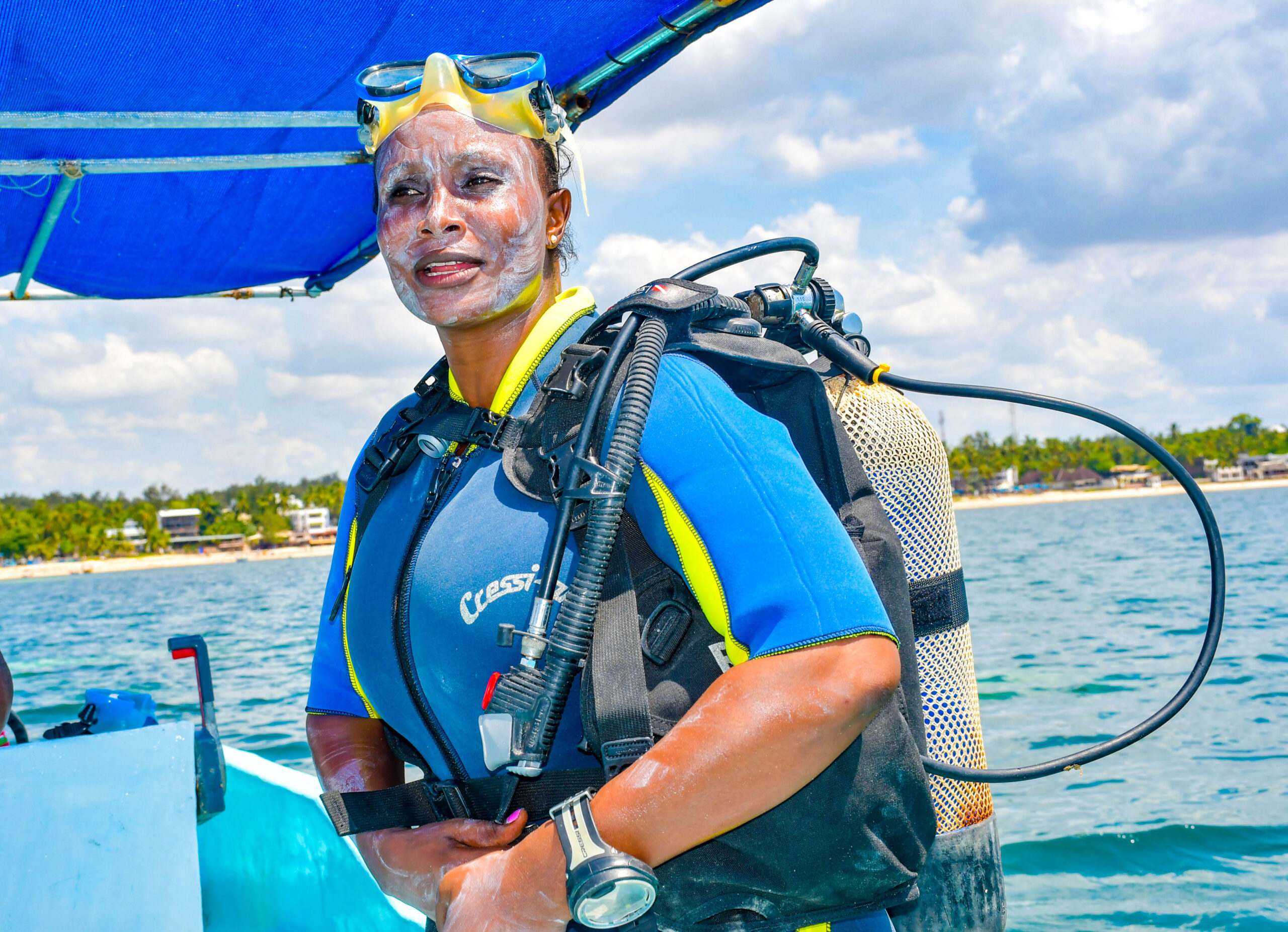
As the water closes in over Susan Mtakai‘s head, she can’t help thinking about how the depths she’s about to descend to are so very alien to the life she was once used to. Born in the highlands of Taita, a county inland from the coast, her early experiences were of a landscape of hills and verdant forest. Growing up far from the sea was hardly what one would expect of someone who was to become a professional diver.
Yet, in the deep waters of the Indian Ocean, Susan Mtakai is a calm and considerate team leader. Donning a well-worn dive suit that bears traces of countless missions, her eyes show focus and confidence; the underwater world is now a familiar space for the rescue diver.
On this day, Mtakai and her colleagues are on a mission to retrieve the body of a young girl who drowned while swimming. As she guides her team down under the surface of the heaving sea, she ensures that her crew understand the importance of their mission.
“When we get the call for retrieval operations, the first thing I do is prepare my squad. We must plan cautiously because it is risky. We must have all of our equipment ready to ensure that the task runs successfully,” the 35-year-old explained after the mission.
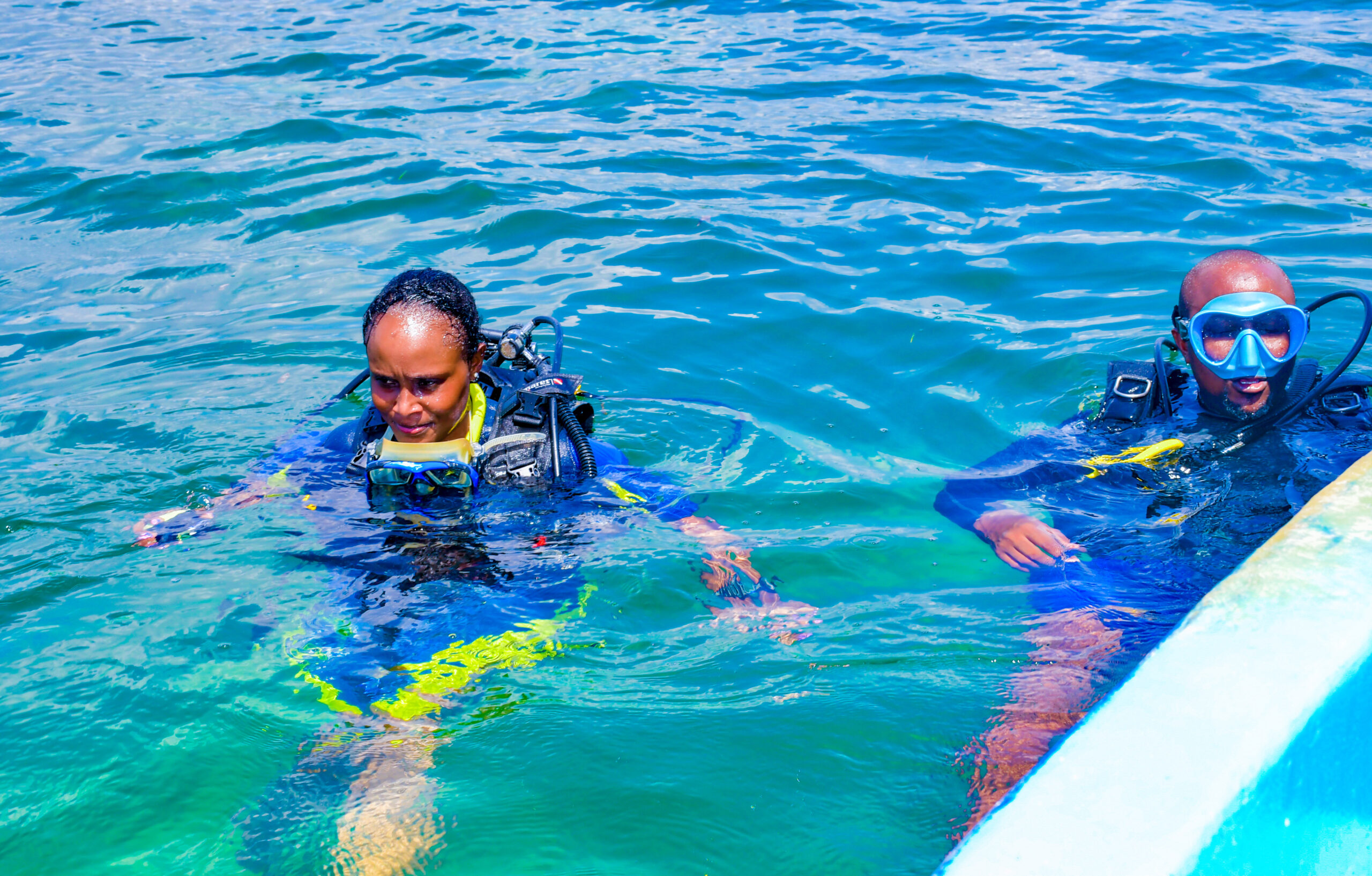
Mtakai’s maritime story began in 2011 when she travelled to the busy Kenyan seaside for the first time. She discovered a love of the water, of the sounds of the crashing waves and the mews of seagulls. A connection with the environment, which had led her to become a park ranger, now had an entirely new focus.
“When I moved to the coast, I began as a Kenya Wildlife Service ranger in Mombasa Marine Park. This is after numerous training in the field and school. I mostly assisted in the preservation of marine ecosystems and other aspects of marine conservation. I had never been in the ocean before, in fact, I didn’t even know how to swim,” Mtakai said.
She spent nine years focusing on marine conservation, safety, and education. In the process, she discovered the fascinating world beneath the waves.
“One ordinary day, as we patrolled the beach to ensure the ocean was clean, an unexpected challenge threw us into an unprepared rescue mission. There was a boat and the occupants were in distress. Without much knowledge on search and rescue, we found ourselves in a tricky situation, forced to rely on our basic knowledge.”
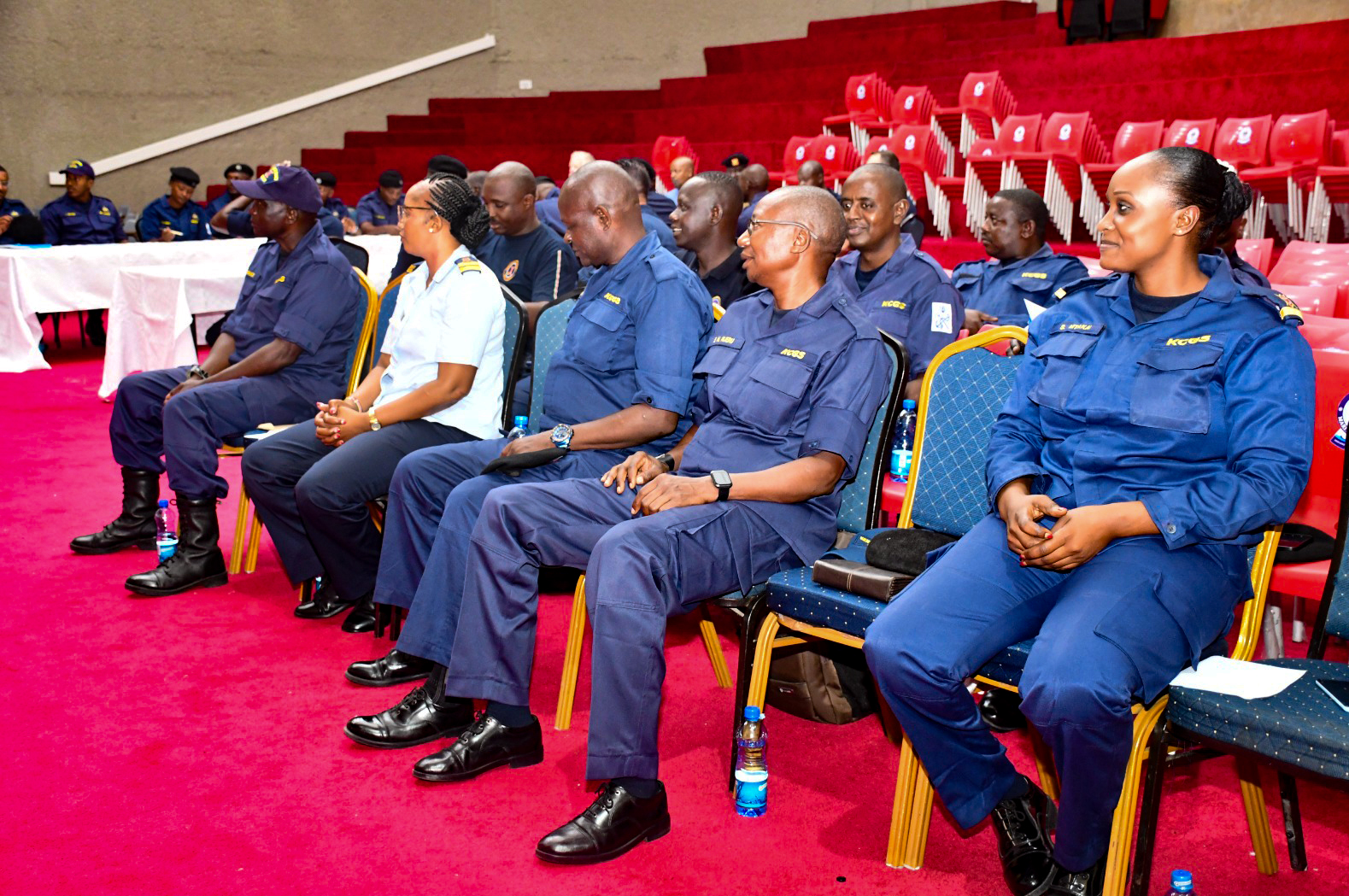
Intrigued and eager to learn more, Mtakai took up diving. With the encouragement of her friends, she went through vigorous training, first mastering open water diving and then taking specialised courses. Her newfound skill set opened the door to a completely new world – both physically and metaphorically – pushing her from her familiar duty as a land-based ranger to the thrilling depths of the ocean.
In 2020 she was seconded to the Kenya Coast Guard Service. This allowed her to fully immerse herself in her love for diving and demonstrate her skills beneath the seas. But here she encountered another challenge: she had her work cut out to regularly prove her capacity as a woman in a tough environment.
“There were very few people, especially women in the Coast Guard service, especially free diving,” she explained.
Beyond the difficulties of working in an understaffed and underskilled service, Mtakai also ensures that she and her team are properly equipped with well-serviced scuba diving gear.
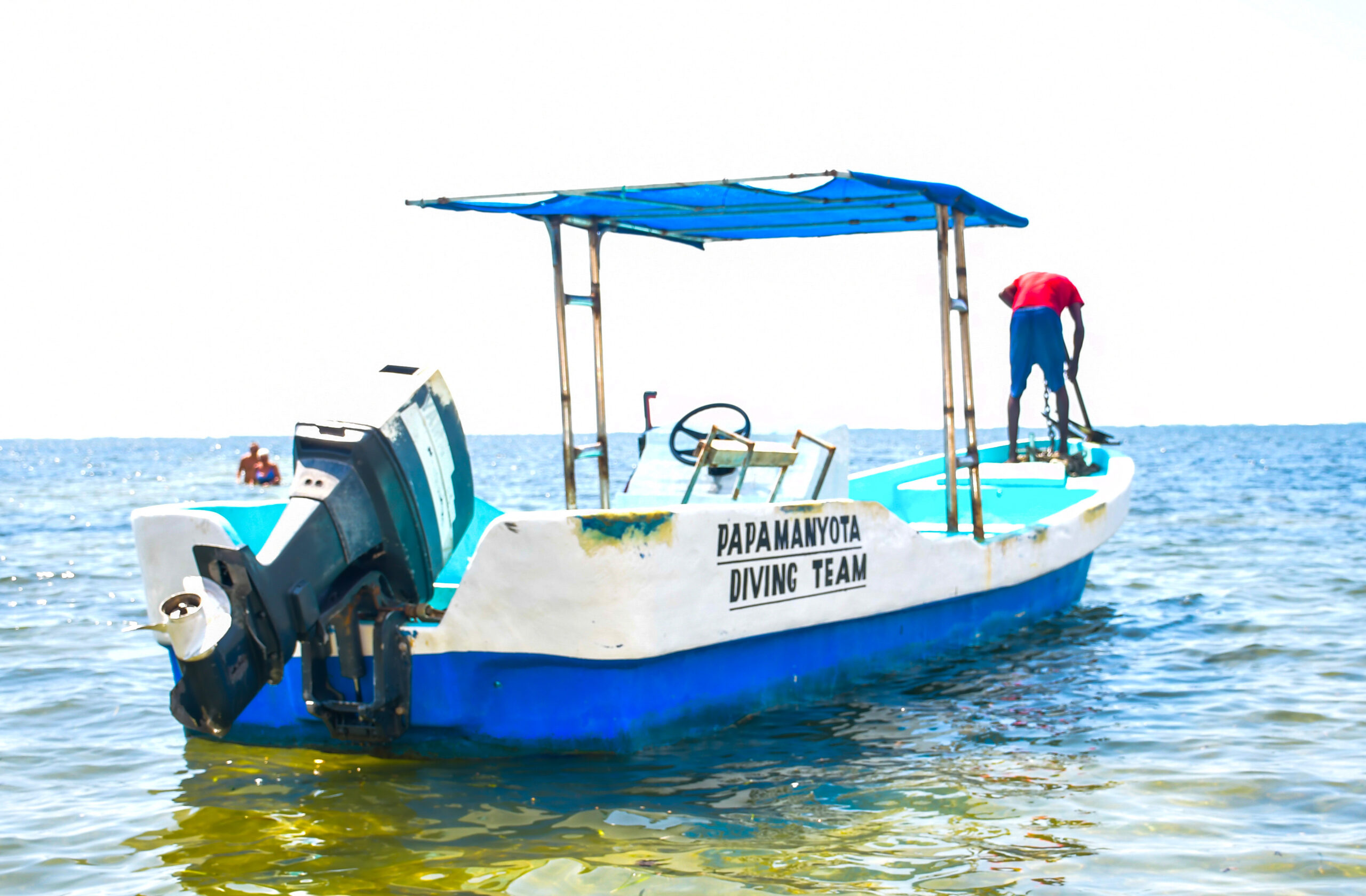
“I use fins for smoother movement and a weight belt to control my buoyancy. A diving mask is essential for great underwater vision, and a waterproof watch allows me to precisely track time. For safety and better visibility, I also carry flashlights and use distinct safety markings.”
After retrieving the body during the current mission, Mtakai and her crew handle the remains with utmost care and respect. Once back on the surface, they undergo a comprehensive debriefing to ensure all team members get the emotional support they need. They then hand over the body to the authorities.
“We work with authorities to facilitate the appropriate procedures for the proper documentation and handover of the deceased to their families. This is where our work ends as search and rescue.”
While search and rescue may be one of her toughest tasks, Mtakai wears multiple hats within the Kenya Coast Guard Service. She also oversees fishing safety training programs and her team management experience has been called on to help build a culture of safety and professionalism in the service.
Perhaps more importantly, Mtakai is also a leader determined to break down old boundaries and has become a strong champion of the marine sector as an open and inviting environment for women. That has offered opportunities to more women wishing to join the Coast Guard.
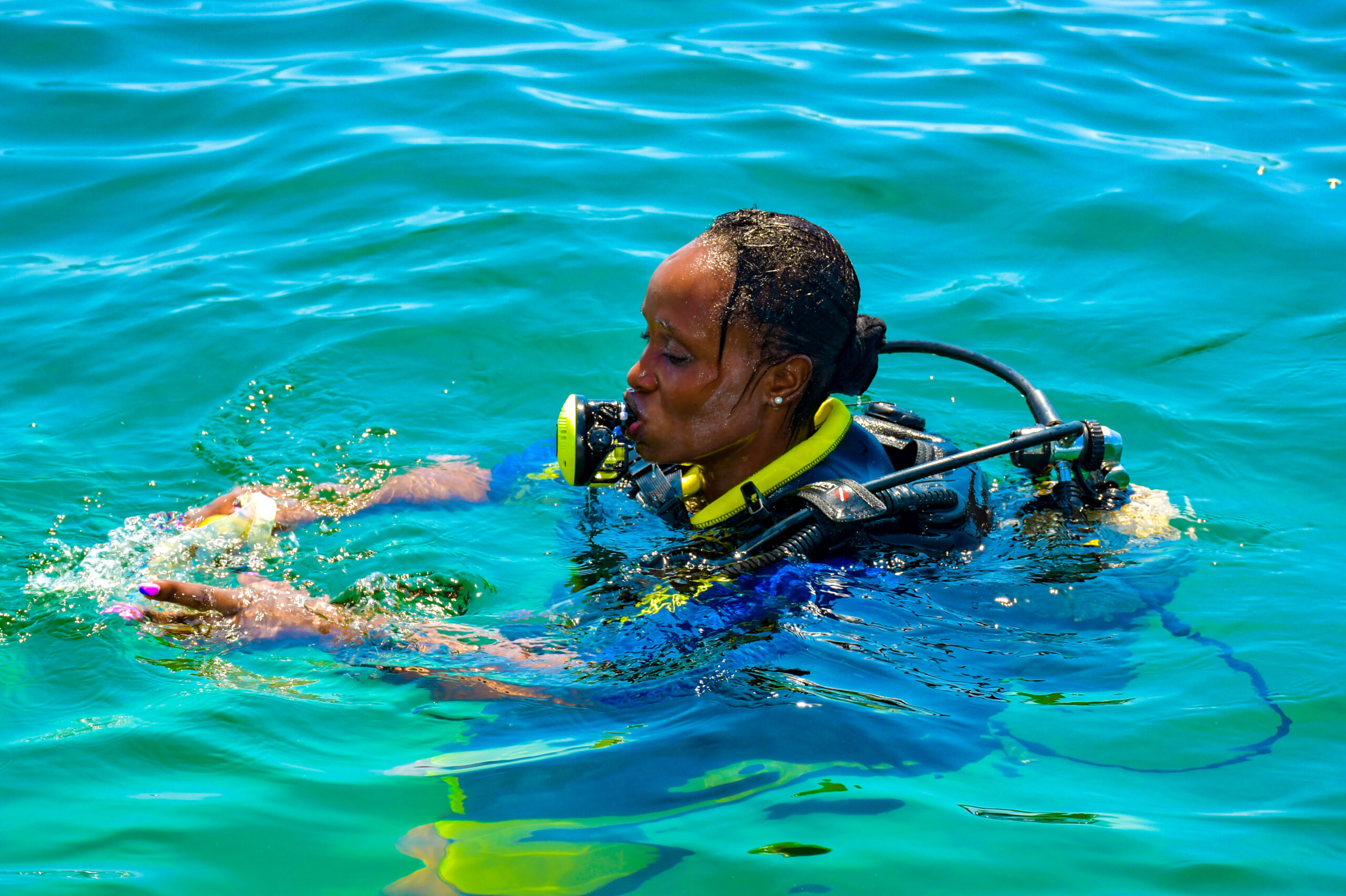
“I’ve been here for nine years. When I started, only five women were working with us. I joined them, and now we have 15 women in different departments, even in management,” said Beatrice Jeroop, a corporal with the Kenya Wildlife Service.
Millicent Omido, an engineer by profession and a senior sergeant in the service, is responsible for the service’s boats. Having risen through the ranks, the growing opportunity for women has meant her experience translated into a senior role. She ensures all vessels for diving and other duties at the Kenyan Coast Guard Service are well maintained and serviced.
“I’ve spent 16 years in the marine industry, and it’s seen some incredible changes. You know, it’s normally where the men take command. So, seeing women making a great influence here now is like reaching a huge milestone,” Omido said.
“Having women in the maritime industry is quite crucial. They provide a variety of abilities and viewpoints to the team. It’s not just about breaking norms; it’s about ensuring that we have a diverse and motivated team to protect our oceans,” said John Wanyoike, Director of Enforcement and Emergency Response at the Kenyan Coast Guard Service.
Mtakai’s work also sees her engage with other emergency services, government agencies and the local community. Purity Amondi and Lynet Kerubu are two members of the community who now take tourists diving, thanks to Mtakai.
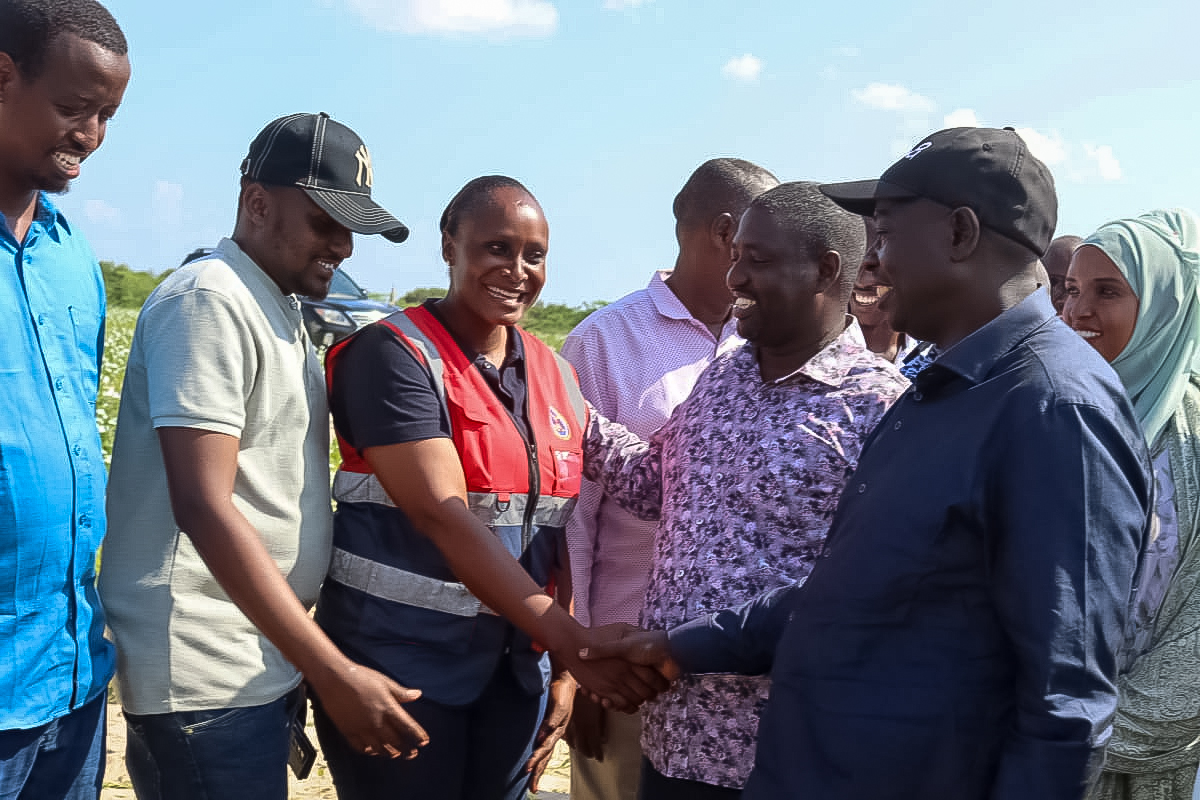
“Susan has made a difference for women here. She has made us believe that we can do this job just as well as anyone. Because of her, more women feel they can join us and make a difference in the marine sector,” Kerubu said.
While Mtakai’s work and community engagement paint a picture of perseverance, determination, and a strong commitment to saving lives and improving maritime safety, there is also an additional element to her work in the ocean.
“When we go diving and I see the corals flourishing and the ocean clean, it makes me happy. It feels like our own little world,” Mtakai said, her face beaming as she explained the constant delight of discovering the beauty of the underwater world, even after all this time.
“I aim to protect and celebrate this watery realm. We are working to preserve its beauty for future generations and women like me,” Mtakai concluded.
Mtakai makes waves on land too – her work was recognised through the National Heroes Council, with a National Hero award.
Story Credit: Velma Pamela for Bird Story Agency


